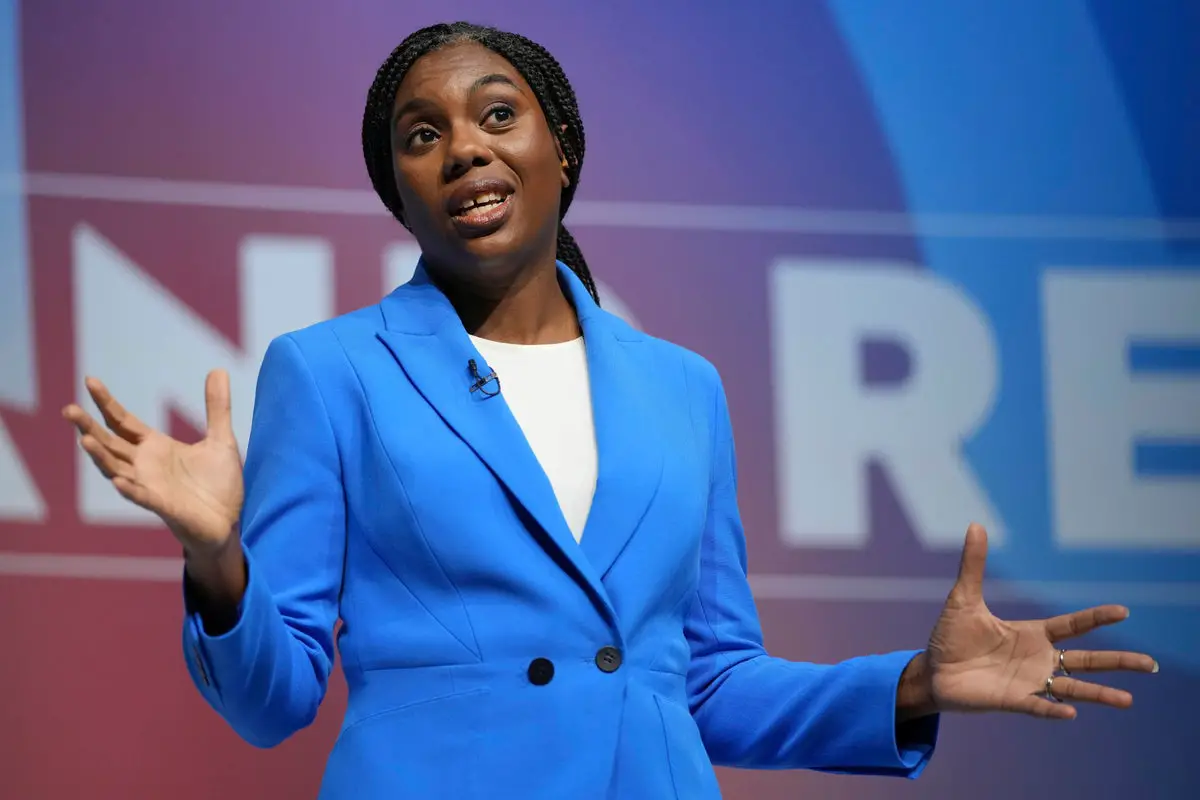The Conservative Party’s survival instinct is beginning to kick in. Party members resisted the lure of Robert Jenrick telling them what he thought they wanted to hear and chose a conviction politician who will maximise their chances at the next election.
Not that the Tories’ prospects of returning to power after a one-term Labour government are good. Just because Keir Starmer has made a stumbling start and the Tories have taken a one-point lead in one opinion poll does not mean Kemi Badenoch is on the road to No 10.
Any leader would face an almost impossible task. The Conservative Party lost the general election very badly. Never mind that Labour’s huge majority rests on the shallow foundation of just one-third of the votes: the Conservatives did much worse. The median age of a Conservative voter in July was 63. The party lost a big chunk of its support to Reform – and those voters feel so betrayed by the Tory record on immigration that it will be hard to win them back.
But politics is an unpredictable business and it is better to be in with a chance than to spend the next few years indulging in the fantasy of withdrawing from the European Court of Human Rights and fighting an internal Tory war over it. In fact, I think the Tories stand a better chance with Badenoch than with either Jenrick or James “Normal” Cleverly, both of whom would have been “dull versus dull” against Starmer.
Badenoch is not dull. Of course she is not Margaret Thatcher. But she does have one of her priceless assets, which is that she is a clear and direct speaker because she is authentic. As she said this week: “I’m not Maggie. I’m not a chemist. I’m Kemi. I’m an engineer.”
That directness means she will win a hearing, which can be hard enough for an opposition leader – ask William Hague. I think she will give Starmer a rough time at the despatch box, although, again, ask Hague whether it did him any good that he often “won” his exchanges with Tony Blair.
She will get into trouble for saying the wrong things, such as that maternity pay is going “too far”, but she will get noticed, and the underlying message of personal responsibility and curbing the overweening state may get through.
But she still faces that almost impossible task. The main barriers to voting Tory for those who did so in 2019 but not in 2024 were, according to Onward, the Tory think tank: immigration is too high; the party is weak and divided; and public services are worse.
Tom Hamilton, the former Labour staffer who having prepared Jeremy Corbyn for Prime Minister’s Questions knows something about lost causes, said: “The Conservatives could conceivably become less weak and divided between now and the next election, although this is easier said than done. But they can do nothing to cut immigration or to improve public services. Nothing. This is because they are not the government. It is also why they are not the government.”
That is the nub of the problem. Badenoch has to prove to the voters that the Conservatives, thrown out of office for incompetence, will be competent if entrusted with power again.
As Hamilton said: “The Conservative Party can promise to reduce immigration and improve public services, and it can put forward policies designed to do so. But they will be heard by the public in the context of a broad perception that these are things the Tories are rubbish at, and can’t be trusted on.”
Almost the only hopeful sign for the Tories about Badenoch’s election is that she understands this. She said, in her admirably short acceptance speech, that the party’s task is to prepare not just a clear set of Conservative pledges “but a clear plan for how to implement them”. She managed to combine that with a sideswipe at Labour: “The prime minister is discovering all too late the perils of not having such a plan.”
And by declaring, “That huge job begins today,” she showed that she understands the scale of the task ahead. It has to start, as she said, by being “honest about the fact that we made mistakes”, but it has to go much further than that.
Her mission is to transform perceptions of the Tory party – to persuade the voters, while in opposition, that the party is competent. She could change the party’s name, as Lynton Crosby, the Australian election guru, suggested, but all the weapons she has at her disposal are the power of words, the strength of her personality and the unspoken hope that the Labour government will fail, and fail quickly.


Leave a Comment